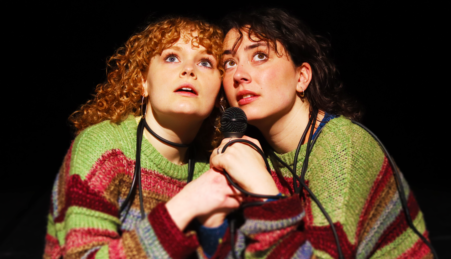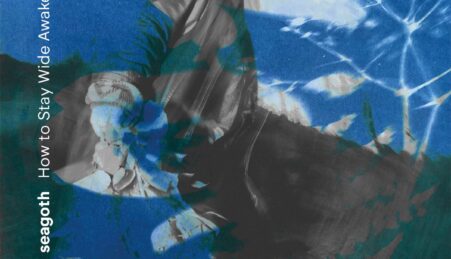
Humanity Hallows Issue 5 Out Now
Pick up your copy on campus or read online
By Bridget Taylor
The recent 2017 Humanities in Public festival event ‘Sites of Resistance: Speaking Truth to Power’ aimed to highlight two apparent injustices committed by the state, focussing on two documentaries: Hillsborough, directed and produced by Daniel Gordon, and Killing the Law, by Anton Califano.
The event was organised by a collective, formed in 2015 by members of the Manchester Met Sociology department: Sites of Resistance. The group aim to challenge state power and injustice by providing a counter narrative and questioning established knowledge.
Hillsborough is a definitive account of the Hillsborough Disaster of 1989, in which 96 football fans died. The families of the 96 fought for 23 years for the truth of what happened to finally be admitted openly, continually contesting the police account that drunken Liverpool fans had caused a crush. In the film, Gordon highlighted the important part that documentaries can play in supporting that struggle. He said, “All the information was already out there, but the film brings all of those bits and pieces together into one place.” His is the first Hillsborough documentary that had access to the BBC footage from the time, and so the evidence could be used to create an account of events that is undeniable.
Killing the Law documents the impact of, and the fight against, a legal doctrine known as ‘joint enterprise’, which states that a person can be convicted for the results of a criminal enterprise, even if they didn’t actually commit that particular crime. This can mean a life sentence for someone who did not, themselves, commit murder. The film follows the campaign group Joint Enterprise: Not Guilty by Association (JENGbA), made up of the relatives of those who have been convicted because of this practice.
Califano spoke about the challenge of knowing how to tell this story, to “make people understand it…when most people want to believe that the justice system is doing the right thing.” However, he also came to realise that the problem goes deeper than that, saying, “I spent a long time going in the wrong direction…I thought the problem was the law, but it’s actually us as humans, our moral attitudes, our race and class prejudices. The film came to enshrine something about how we are as a society.” Some of the clips shown reinforced this, as they revealed how this law disproportionately affects BAME communities.
Both filmmakers highlighted how documentary can combat misinformation spread by the media, because the role of the documentary maker is to act as a witness. Regarding the Hillsborough disaster, Gordon said, “The ‘truth’ is constructed. The police had already got their story out on the day. They gave false reports recorded as fact.” The difficulty is that this version of events then becomes the “established narrative” which lingers in the public consciousness, and so they are having to “try to make people change their view completely from the idea that these people must have done something.”
Califano also stressed that the media often reports something that was said in court, like a witness statement, as fact, or what they report is coloured by the fact that there was a guilty verdict, whereas the documentary maker sees the bigger picture.
People involved in the films spoke about the documentaries’ impact. One woman, who appeared in Killing the Law, attested to the power of the documentary to reveal stories which are not normally told in the media. She said, “When you see everyone’s story together, it makes people realise that we’re just honest people who are in the right.”
Another man from the same film told how, even though the law is meant to work for the people, the justice system is immensely powerful: “When you explain to an ordinary person what the law says – that you can foresee what people will do – it doesn’t resonate, and the justice system thinks they’ve gotten away with it, but this is the common law – the people’s law – it should be changed.”
The event made a case for the documentary as a powerful political tool, but ended with a sense of the need for ongoing struggle. Gordon made the point that modern technology has turned us all into potential witnesses. He said, “The Hillsborough cover-up would’ve been much harder now, as people could’ve posted their own videos online.” However, he warned against this making us complacent: “Don’t take Hillsborough as an isolated incident, these kinds of injustices are still happening on a mass scale to people that the system sees as weak.”
Senior Sociology Lecturer and Sites of Resistance member Becky Clarke spoke about the kind of work the group are doing: “Universities have often been sites for change, historically and more recently, with student groups supporting movement and protests, from those challenging education cuts or sexual violence, to the UK Black Lives Matter movement.
“We have a privileged position as through critical research and events such as these we can give voice to individuals and groups who are marginalised, and connect the skills and resources in the university to these campaigns.’ For Sites of Resistance, events such as this one are key to that aim: ‘they make these stories available to a wider audience’ and ‘they bring people together – building alliances between individuals and campaigns which they can go on to get involved with and support.”
There are two more upcoming events organised by Sites of Resistance:
‘Collective thought and Action’ on 16th March 6- 8pm at No. 70 Oxford St
‘Giving voice to the next generation’ on 23rd March 6- 8pm at No. 70 Oxford St






Leave a reply